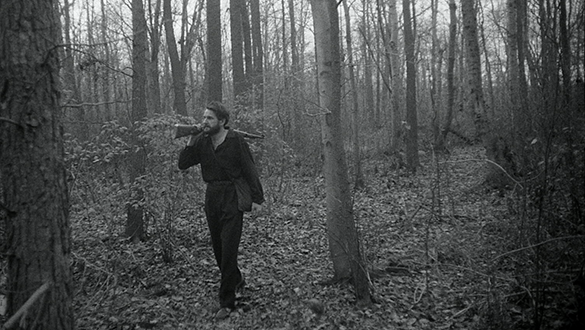
"Four young people are trying to understand why their friend, a young woman, committed suicide [...] A film made up of disconnected scenes weaving between past and present. The title of the film comes from a poem by Stuart Perkoff [...] Guns of the trees deals with the thoughts, feelings, and anguished strivings of my generation, faced with the moral perplexity of our times. Conceived as an episodic, horizontal film, there is no apparent direct story connection between one scene and the next. The scenes act like pieces of a larger, timed, emotional mosaic. Where the direct word, or the direct image, fails – when we come to more essential things – the indirectness of the poet will seize the essence and the truth”. (Jonas Mekas)
Jonas Mekas (1922-2019) was born in Lithuania and, with his brother Adolfas, was held captive in a forced labor camp during World War II. He immigrated to New York in the late 1940s. There he became an emblematic figure of the American experimental cinema and the avant-garde scene, making mainly diary films but also founding magazines, collectives and experimental film archives. He was the first director of the famous organization for experimental cinema Anthology Film Archives. Until the end of his life he wrote poetry and published books on cinema, made diaristic cinema with film but also with the new digital media.



